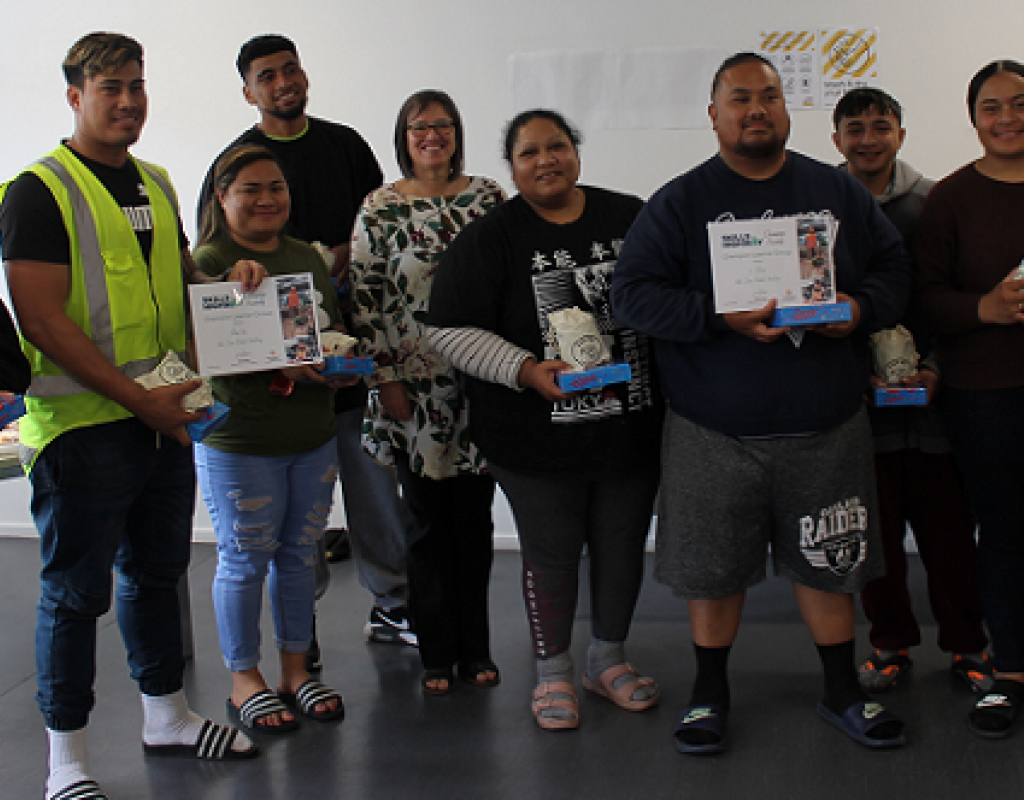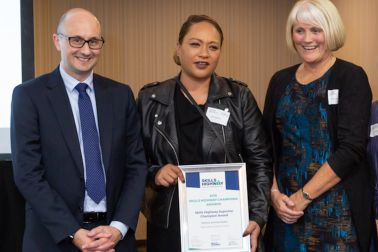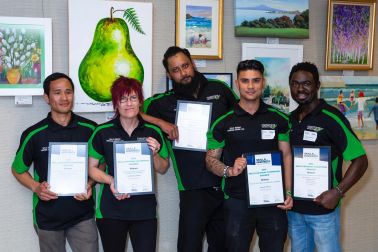Investing in workplace training programmes has paid off for several PAK’nSAVE stores, with staff benefitting from improved communication within and outside the business.

Supermarket trolley filled with groceries.
As one of New Zealand’s largest supermarket chains, PAK’nSAVE places great importance on ensuring staff are equipped with the skills and confidence needed to effectively carry out their roles. With staff spread across the country, it’s essential that staff receive training that is consistent across the organisation, but also tailored to their individual needs.
In 2020, several North Island PAK’nSAVE stores signed staff up to workplace training programmes focusing particularly on leadership, communication, and customer service. The programmes were delivered by Aspire2 Business | Workplace Communication and supported by the Tertiary Education Commission’s Workplace Literacy and Numeracy Fund.
Despite the lingering threats of the COVID-19 pandemic, learners have progressed well through the programmes, gaining critical skills they can apply not just at work, but also in their personal lives.
Upskilling in key areas
Ensuring staff understand and follow health and safety policies and procedures is a top priority for PAK’nSAVE. In addition to specific courses on health and safety, Aspire2 Business |Workplace Communication also delivered training on effective communication, which aimed to improve employees’ communication skills not only with each other but also with customers.
The courses covered key topics such as assisting customers with confidence and communicating clearly. Learners have seen many positive flow-on effects from the training, both at work and in their personal lives, for example increased confidence, improved customer service skills, and improved engagement with their work.
As a direct result of the programme my staff have grown in confidence, and they feel more able to raise issues and communicate on a professional level,” says Kobie Henry, HR manager at PAK’nSAVE Ormiston.
“They are more engaged in their roles and really invested in the business as they feel they have a voice, and we are listening.
Tailored programmes that put learners at the centre
The success of the programmes was largely down to the way PAK’nSAVE worked with Aspire2 Business | Workplace Communication to customise the training to the specific needs of their workforce.
The programmes were developed in close consultation with PAK’nSAVE managers and supervisors from each participating store, to target priority skill areas and ensure they catered to the cultural needs of a diverse workforce. As a result, learners were able to take advantage of culturally inclusive programmes and benefit from individual, tailored assessments.
The benefits of such training were clear to see, evidenced in PAK’nSAVE’s long-running relationship with Aspire2 Business | Workplace Communication. For instance, 2020 was the third consecutive year the Glen Innes PAK’nSAVE store ran these programmes.
I have seen amazing improvements in the learners’ communication, they have developed a great understanding of how their actions and words affect outcomes in any situation,” says Tahlia Smith, HR/compliance assistance at PAK’NSAVE Westgate.



 Naming the programme was key. To begin with it was called Literacy and Numeracy Training. However, this didn’t give the staff the best perception of the course benefits, therefore, something had to be done. After some brainstorming, ‘Simply the Best’ was born – the name helps ‘sell’ the 10-week, 40-hour programme to staff who’d like to improve and become ‘Simply the Best” in both in their work and personal lives.
Naming the programme was key. To begin with it was called Literacy and Numeracy Training. However, this didn’t give the staff the best perception of the course benefits, therefore, something had to be done. After some brainstorming, ‘Simply the Best’ was born – the name helps ‘sell’ the 10-week, 40-hour programme to staff who’d like to improve and become ‘Simply the Best” in both in their work and personal lives.